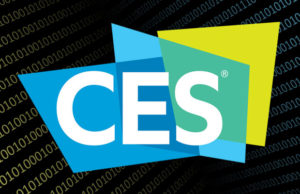
Facebook reportedly is in talks to buy drone maker Titan Aerospace to bolster Internet.org, the project that aims to provide Internet connectivity everywhere in the world.
Facebook, which is one of the main backers of Internet.org, intends to buy Titan for US$60 million, according to TechCrunch.
Titan builds near-orbital solar-powered drones that can fly for five years before needing to land. The company will be focused solely on production for the Internet.org project if the deal goes through, according to the report.
If Facebook is successful in buying Titan, it likely will use the drones to reach the parts of the world that do not already have Internet access, starting with Africa. It reportedly will start by building 11,000 of the devices.
Communications Capabilities
The Solara 60 model drones that Facebook seems likely to focus on can perform many of the operations of an orbital satellite but at a much lower cost. While Titan’s drones can handle weather monitoring, Earth imaging and disaster-recovery efforts, they also can be used for communications, which is probably what drew Facebook’s interest.
“Whatever Facebook does, it does it on a bigger stage and scale than the rest of the world,” telecommunications analyst Jeff Kagan told TechNewsWorld.
“Bringing Internet signal to vast areas of underserved Earth might let Facebook earn more on advertising,” he suggested.
The Solara 60 drones can launch at night using their own power, then harness solar power to rise to 20 kilometers above sea level, where they can stay for five years.
Titan, which was founded in 2012, is a private company focused on creating the types of drones that replicate the functions of near-Earth satellites at a far lower cost. The so-called atmosats are designed to fly above the airspace that falls under Federal Aviation Administration regulation — above 60,000 feet, in other words.
However, airspace is regulated differently in other nations, and the countries Facebook may plan to penetrate may not have as stringent airspace regulations as the U.S.
Loon Parallels
The mooted drone Internet connectivity project has clear parallels with Google’s Project Loon, which also aims to bring Internet access to developing countries, only through balloons rather than drones. Meanwhile, several technology companies are working on their own Internet infrastructure that bypasses major telecom company installations. Using aerial devices to help people get online is much more cost-effective than laying cable to every home on the planet.
While there’s certainly an altruistic drive behind Internet.org, the alternate side is that Facebook’s user acquisition is slowing. To keep investors happy, it needs to keep growing and reach the billions of people who cannot access the social network as yet.
Still, there are plenty of challenges and risks involved in such an ambitious project.
Debris Concerns
“You have the same issues as with balloons or anything else that is still operating around the Earth and outside of the atmosphere,” noted Jim McGregor, principal at Tirias Research.
“You have environmental conditions and flying debris from space and the ground. The nice thing about drones is that they have power and can maneuver. The drones from Titan also add the benefit of being solar-powered and flying at high altitudes above the atmosphere and above where most objects other than rockets and asteroids are likely to be flying,” he told TechNewsWorld.
“However, in addition to the power for the drone, you would also need power for transmitting data,” McGregor added. “Harvesting and storing enough power for the data transmission is likely to be the greatest challenge for this project.”





















































